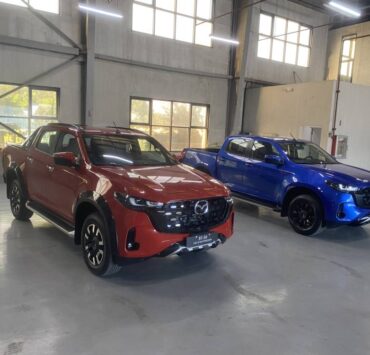When love outlasts the lens

I grew up in a house where pictures were kept in frames, or at the very least, moments were sealed gently in photo albums.
Since I was a kid, my mom made sure to take pictures of me, and my photos came in all sizes—some small enough to fit in the palm of a hand, others large enough to fill an entire page. There I am in every one of them: a boy with scraped knees, frosting on his cheeks, and wide, wondering eyes—frozen in time by a mother who never wanted to miss a single moment of my growing up.
A whole childhood captured frame by frame. My beginnings are documented in both film and faded folds.
One afternoon, I was flipping through those familiar pages, smiling at a memory I couldn’t even recall living—when I turned to my mom, driven by curiosity, and asked, “Ma, saan mga baby pictures mo?”
The silence that followed felt like it lasted an eternity though it was only five seconds. She looked up from her work, paused for a moment, and casually said: “Wala eh.”
I chuckled at first, thinking she was joking, then asked again, “Kahit isa, wala?”
“Wala, hindi pa naman uso camera noon,” she replied.
At first, I didn’t believe her. How could someone not have a single photo of their childhood?
No camera. No photo albums. She said it so casually, but the silence that followed lingered, heavy with unspoken truths. In that quiet moment, I understood. My mother’s childhood—her beginnings—lives only in the memories of those who watched her grow and in the fleeting echoes of stories she shares while going about her daily chores. It haunted me a little. The thought that someone so dear to me, the woman who gave me life, had no pictures of her own.
When you grow up with photos of yourself from every age, it’s easy to take memories for granted. It’s easy to believe that your life has always been worth remembering and worth keeping. That every smile, every milestone, every messy, magical moment deserved to be held onto. But maybe, those were the shots of life my mother was never given.
My mom was born in a barrio, raised on long stretches of sunbaked soil and the quiet strength that came with a simple life. Her childhood wasn’t like mine—there were no cameras to capture her milestones, no birthday photos with candles and cake. Her days began with playing and planting in the fields, walking to school, and ending her nights under the dim, flickering light of a candle, just to finish her schoolwork.
I’ve come to realize this: My mother doesn’t have baby pictures because, at a young age, she was too busy surviving the harsh realities of life. And yet, despite—or perhaps because of that—she made sure I had hundreds.
Every picture frame and photo album kept in our home isn’t just a mere collection of memories from my childhood until my 18th birthday. They are evidence of something deeper: my mother’s promise that I would grow up seen. She may not have known the value of a camera when she was young, but when I came into this world, she understood—every moment was precious. She made sure to capture each one, knowing how quickly they would pass by.
I can still remember the Cherry Mobile 2200 phone she once told me she used to capture every detail of me—my grin after school, the spontaneous laughter with friends, and even the moments when I was covered in dirt and tears, looking nothing like the perfect child I often saw in pictures. She took pictures of each moment, waited weeks to develop them, and placed each photo with care into plastic sleeves that crackled over time.
Even when there were moments I’d shy away from the camera, irritated by the endless shots and rolling my eyes at her familiar line, “‘Nak, tayo ka riyan, picture-an kita.” I now see it for what it was. A mother’s way of trying to hold on to time, to freeze a fleeting moment before it slipped away.
Sometimes I wonder: what kind of child was she? There’s no way to know for sure. But I see pieces of that little girl in her still—her tenderness, her patience, her quiet sacrifices—they all speak of a past I’ll never know, but that I feel every day in her presence.
I’ve never seen her as a baby, but I see her all the time.
In the way I smile. In the way I get stubborn. In the way I love.
And so, this is my photograph of her: A girl who grew up with less but gave more. A woman who was never framed in a picture but was the very frame that held our family together. A mother who taught me that love doesn’t need a lens to last forever.
Now, I want to turn the camera around. Not just to thank her, but to finally give her the picture she never had: one where she is not behind the scenes, but at the center of the story. This time, she is not just the woman holding the camera. She is the moment.
—————-
Gel Ivan P. Copla, 18, is a feature and literary writer whose passion for storytelling grew from journalism and personal reflection.

















